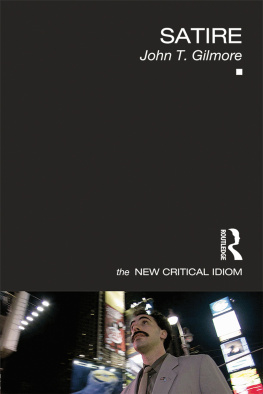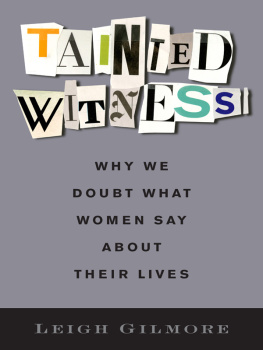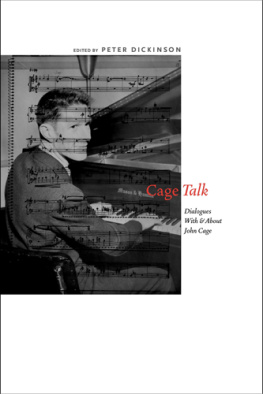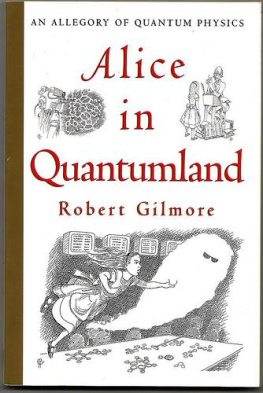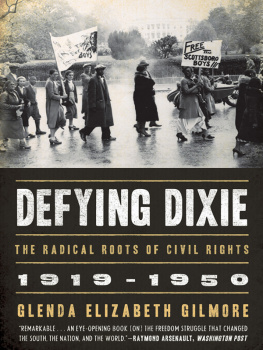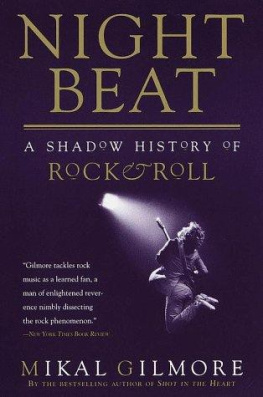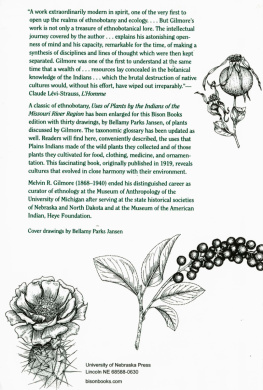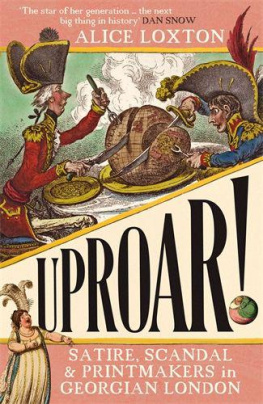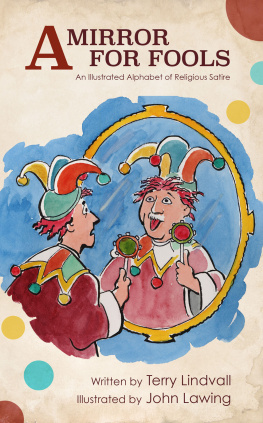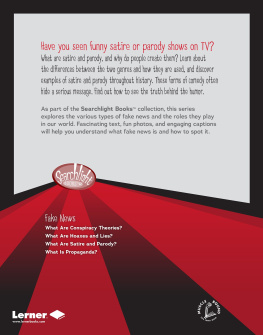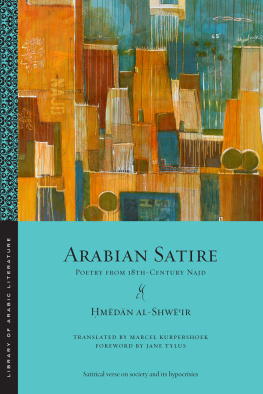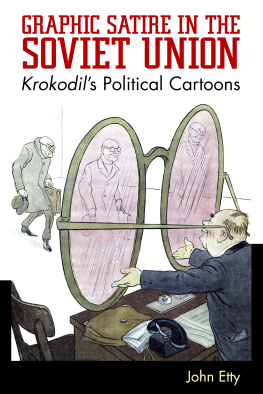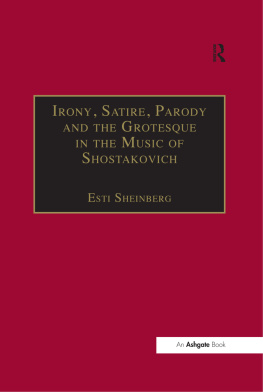SATIRE
What is satire? How can we define it? Is it a weapon for radical change or fundamentally conservative? Is satire funny or cruel? Does it always need a target or victim? Combining thematic, theoretical and historical approaches, John T. Gilmore introduces and investigates the tradition of satire from classical models through to the present day. In a lucid and engaging style, Gilmore explores:
the moral politics of satire
whether satire is universal, historically or geographically limited
how satire translates across genres and media
the boundaries of free speech and legitimacy.
Using examples from ancient Egypt to Charlie Hebdo , from European traditions of formal verse satire to imaginary voyages and alternative universes, newspaper cartoons and YouTube clips, from the Caribbean to China, this comprehensive volume should be of interest to students and scholars of literature, media and cultural studies as well as politics and philosophy.
John T. Gilmore is an Associate Professor in the Department of English and Comparative Literary Studies at the University of Warwick. He teaches, researches and has published on eighteenth-century literature written in English and Latin, the literature and history of the Caribbean, and Translation Studies.
THE NEW CRITICAL IDIOM
SERIES EDITOR: JOHN DRAKAKIS, UNIVERSITY OF STIRLING
The New Critical Idiom is an invaluable series of introductory guides to todays critical terminology. Each book:
provides a handy, explanatory guide to the use (and abuse) of the term;
offers an original and distinctive overview by a leading literary and cultural critic;
relates the term to the larger field of cultural representation.
With a strong emphasis on clarity, lively debate and the widest possible breadth of examples, The New Critical Idiom is an indispensable approach to key topics in literary studies.
https://www.routledge.com/literature/series/SE0155
Mimesis by Matthew Potolsky
Modernism third edition by Peter Childs
Myth second edition by Laurence Coupe
Narrative second edition by Paul Cobley
Parody by Simon Dentith
Pastoral by Terry Gifford
Performativity by James Loxley
The Postmodern by Simon Malpas
Realism by Pam Morris
Reception by Ika Willis
Rhetoric by Jennifer Richards
Romance by Barbara Fuchs
Romanticism second edition by Aidan Day
Satire by John T. Gilmore
Science Fiction second edition by Adam Roberts
Sexuality second edition by Joseph Bristow
Spatiality by Robert T. Tally Jr
Stylistics by Richard Bradford
Subjectivity by Donald E. Hall
The Sublime second edition by Philip Shaw
Temporalities by Russell West-Pavlov
Translation by Susan Bassnett
Travel Writing by Carl Thompson
The Unconscious by Antony Easthope
SATIRE
John T. Gilmore

First published 2018
by Routledge
2 Park Square, Milton Park, Abingdon, Oxon OX14 4RN
and by Routledge
711 Third Avenue, New York, NY 10017
Routledge is an imprint of the Taylor & Francis Group, an informa business
2018 John T. Gilmore
The right of John T. Gilmore to be identified as author of this work has been asserted by him in accordance with sections 77 and 78 of the Copyright, Designs and Patents Act 1988.
All rights reserved. No part of this book may be reprinted or reproduced or utilised in any form or by any electronic, mechanical, or other means, now known or hereafter invented, including photocopying and recording, or in any information storage or retrieval system, without permission in writing from the publishers.
Trademark notice : Product or corporate names may be trademarks or registered trademarks, and are used only for identification and explanation without intent to infringe.
British Library Cataloguing-in-Publication Data
A catalogue record for this book is available from the British Library
Library of Congress Cataloging-in-Publication Data
A catalog record for this title has been requested
ISBN: 978-0-415-48081-9 (hbk)
ISBN: 978-0-415-48082-6 (pbk)
ISBN: 978-0-203-38342-1 (ebk)
Typeset in Times New Roman PS
by Deanta Global Publishing Services, Chennai, India
To the memory of my parents,
Terence James Gilmore
(19161998)
and
Kathleen May Gilmore,
ne Rowley
(19232011)
without whose commitment to my education
this book would not have been possible.
CONTENTS
The New Critical Idiom is a series of introductory books which seeks to extend the lexicon of literary terms, in order to address the radical changes which have taken place in the study of literature during the last decades of the twentieth century. The aim is to provide clear, well-illustrated accounts of the full range of terminology currently in use, and to evolve histories of its changing usage.
The current state of the discipline of literary studies is one where there is considerable debate concerning basic questions of terminology. This involves, among other things, the boundaries which distinguish the literary from the non-literary; the position of literature within the larger sphere of culture; the relationship between literatures of different cultures; and questions concerning the relation of literary to other cultural forms within the context of interdisciplinary studies.
It is clear that the field of literary criticism and theory is a dynamic and heterogeneous one. The present need is for individual volumes on terms which combine clarity of exposition with an adventurousness of perspective and a breadth of application. Each volume will contain as part of its apparatus some indication of the direction in which the definition of particular terms is likely to move, as well as expanding the disciplinary boundaries within which some of these terms have been traditionally contained. This will involve some re-situation of terms within the larger field of cultural representation, and will introduce examples from the area of film and the modern media in addition to examples from a variety of literary texts.
This book has been far longer in the making than originally anticipated, and I am especially grateful to John Drakakis, a very prince of editors, and to Polly Dodson at Routledge, for their exceptional patience and understanding.
Susan Bassnett originally suggested that I should undertake the task, and I am grateful to her and to other colleagues, past and present, in both the Department of English and Comparative Literary Studies and the former Centre for Translation and Comparative Cultural Studies at the University of Warwick, for their support and encouragement. Simon Swains support for a period of study leave was of significant benefit in keeping the project going, and the hospitality of Hamish Adam and Christina Bruce in Dubai enabled me to make real progress with one of the chapters.
John Drakakis made many helpful suggestions during the writing, as did Iman Sheeha , who read the entire manuscript. For particular ideas, points of information, or general support, I am indebted to Paul Botley, Wanyu Chung , Maria Cohut, David Dabydeen, Lynn Guyver, Piotr Kuhiwczak, Lynne Long, Maria Petrone, Madeleine Scherer, Christian Smith, Jane Stevenson, David Taylor, Michael Tsang and Chantal Zabus. My wife Marita and our children Alex, Annabelle and Giselle, continue to put up with the peculiar demands of being an academics family, and Alex in particular has endeavoured to make me more aware of contemporary culture. Another debt is acknowledged in the dedication.

